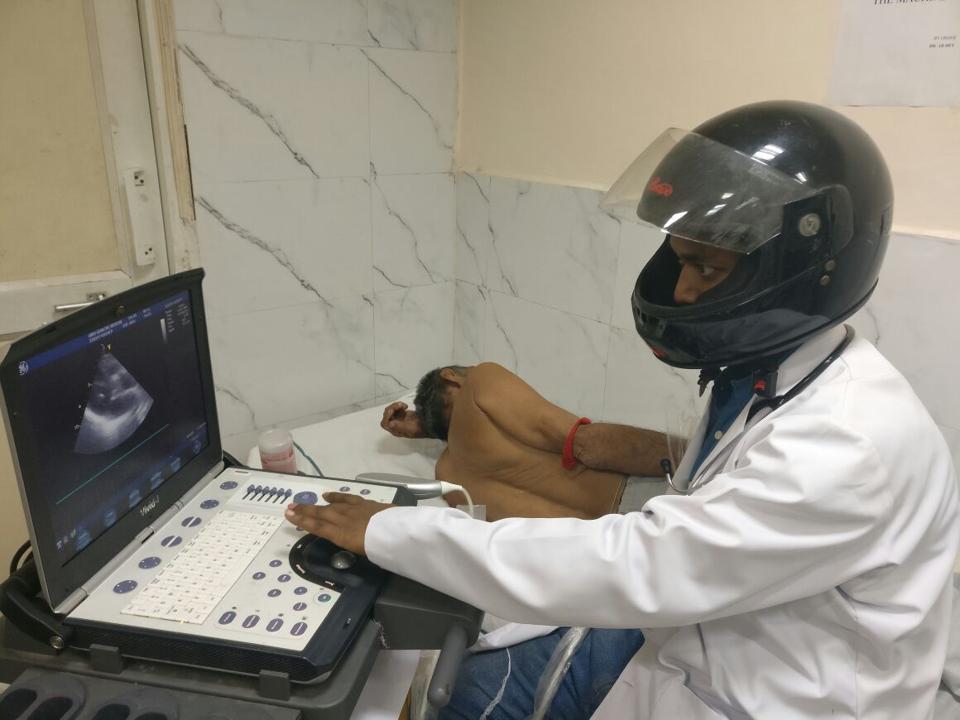6 Ways To Overcome A Traumatic Experience

When a person has endured a traumatic experience, it becomes difficult to move on and continue living. After all, such an experience could have a negative impact on their mental health and productivity. Brushing the trauma aside is also not a viable option. Rather, it may aggravate the situation.
Regrettably, most individuals will face trauma at some point in their life. Almost all adults are thought to have experienced some kind of traumatic event. They may have experienced emotional responses to trauma, such as sadness, horror, anxiety, fear, anger, and depression, following a traumatic event.
If you believe you have experienced trauma and are having difficulty moving on with your life, you have come to the right article. The following is a list of methods for overcoming your traumatic experience.
- Get Professional Help
It takes time to heal from the effects of trauma. Everyone also heals at a different pace and in a unique way. However, if it has been months or years after the traumatic event and your reaction to them is still interfering with your daily life, you may want to seek professional treatment.
Psychologists and other mental health professionals help trauma survivors make sense of and cope with their experiences by examining how they think, feel and act after experiencing traumatic events. They develop the tools and treatment programs to help their clients. One good example is the treatment programs offered at https://jacksonhousecares.com/program/our-treatment/trauma/. Programs like these help clients get through traumatic events.
Thankfully, there’s no shortage of treatment centers that can assist with trauma recovery. Be sure to look for professionals that are specifically trauma-trained and have all the tools necessary to help you recover. Certain facilities are renowned for their highly skilled and trained team that assists individuals in overcoming trauma. Such facilities can provide you with a life you can enjoy rather than merely endure.

- Share Your Feelings With Loved Ones
Talking about a traumatic event can be hard, especially if it means going through the event again. But keeping your feelings inside can make things worse in the long run. It might be best to share your experiences with your trusted loved ones to ease the burden of your negative recollections and feelings. After all, overcoming a traumatic experience is something that you shouldn’t do alone. Even if they don’t know what to say, talking about what happened will feel liberating.
Also, keep in mind that full recovery takes time. It’s critical that you take things gradually and allow yourself to feel your thoughts and feelings, even if it means shedding a few tears. Talking about it with your loved ones will undoubtedly help.
- Be More Physically Active
A traumatic event can cause anxiety, irritability, insomnia, depression, unwanted thoughts, and other problems. However, it’s thought that regular exercise helps people develop coping mechanisms, improve their quality of life, engage in life more fully, and cultivate a stronger will to live.
There are several types of exercise and activities that can be therapeutic and beneficial to your recovery from a traumatic experience. This includes activities such as horseback riding, yoga, walking and fishing. In the end, taking care of your physical health is crucial if you’re hurting as a result of trauma. So, move around and establish an exercise routine.
- Understand And Overcome Your Triggers
If you went through a traumatic experience, there’s a good chance that you’ll occasionally encounter triggers as you go about your daily activities. A trauma trigger is basically anything that makes you remember a traumatic event from the past. These are the things that cause you to panic, feel stress, or see flashbacks. These could also be anything, such as a scene, a location, or a sound. It could even be a date, like when the traumatic event happened.
Since these triggers are unavoidable, it may be best to better prepare for them by learning what causes them. What are the things that make you uneasy? What effect do such things have on your feelings and thoughts? You might find it helpful to write down your triggers so that you have a clear record of what is happening in both your mind and body. This will assist you in recognizing patterns and gaining a deeper understanding of what is triggering you and why.
- Strive To Get Better Sleep
Traumatic events can affect how well and how much a person sleeps. This is because, when the brain is overstimulated following a traumatic event, an adrenaline surge may occur. This, combined with heightened awareness and alertness, may make falling and staying asleep difficult.
If you’ve experienced trauma and feel like you’ll never be able to get a good night’s sleep again, know that there is still hope. One way to sleep better is by creating a comfortable sleeping environment. Sleep in a comfortable and safe bedroom. Adjust the room temperature to a setting that is most relaxing for you. If you find that being alone is a trigger for your anxiety, try sleeping with a friend or family member instead.
- Consider Music Therapy
Music therapy can help you in many ways. It’s currently being used to assist people from various backgrounds. This includes people who’ve been through a traumatic event, are depressed, or are on the autism spectrum.
Music therapy has been shown to reduce physical responses to trauma, including heart rate, blood pressure, and muscle tension. Some of the psychological symptoms that music can affect are anxiety, irritability, feeling alone, and having flashbacks.
Music therapy can involve making tunes, singing, or even just listening to songs. This can be used to aid in the healing process, complement stress management techniques, inspire action, and lessen discomfort.
Final Thoughts
Now that you’ve learned the ways to overcome a traumatic event, try putting them into practice. Just keep in mind that it will take some time. No one can heal from a traumatic event overnight. Also, it’s important to know that everyone copes with a traumatic event in their own way. The impact may be felt immediately by some, while for others it may take some time. You may also become angry or upset. No matter how well or poorly your recovery goes, it’s important to try to understand your emotions, share them with those close to you, and get help if necessary.





